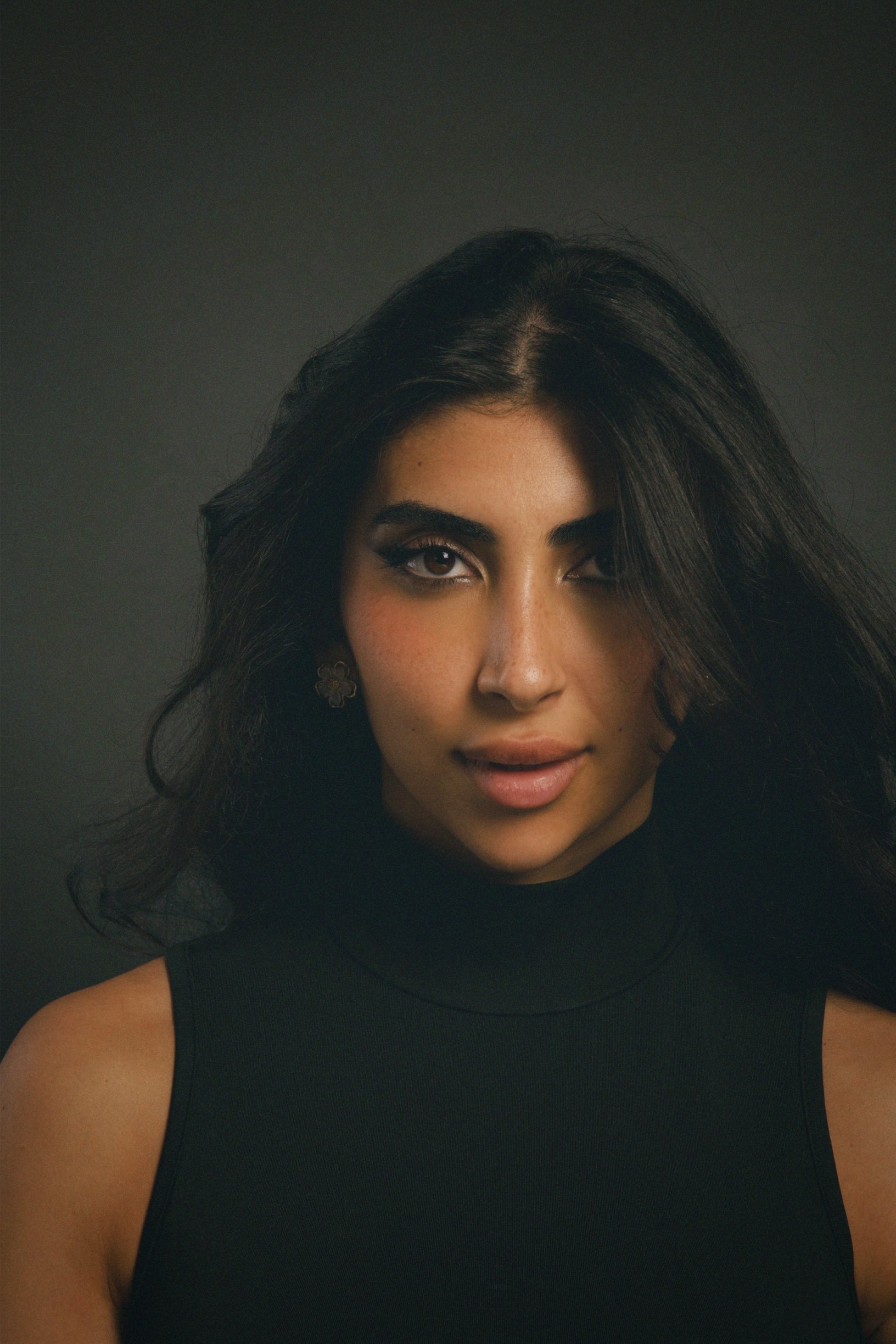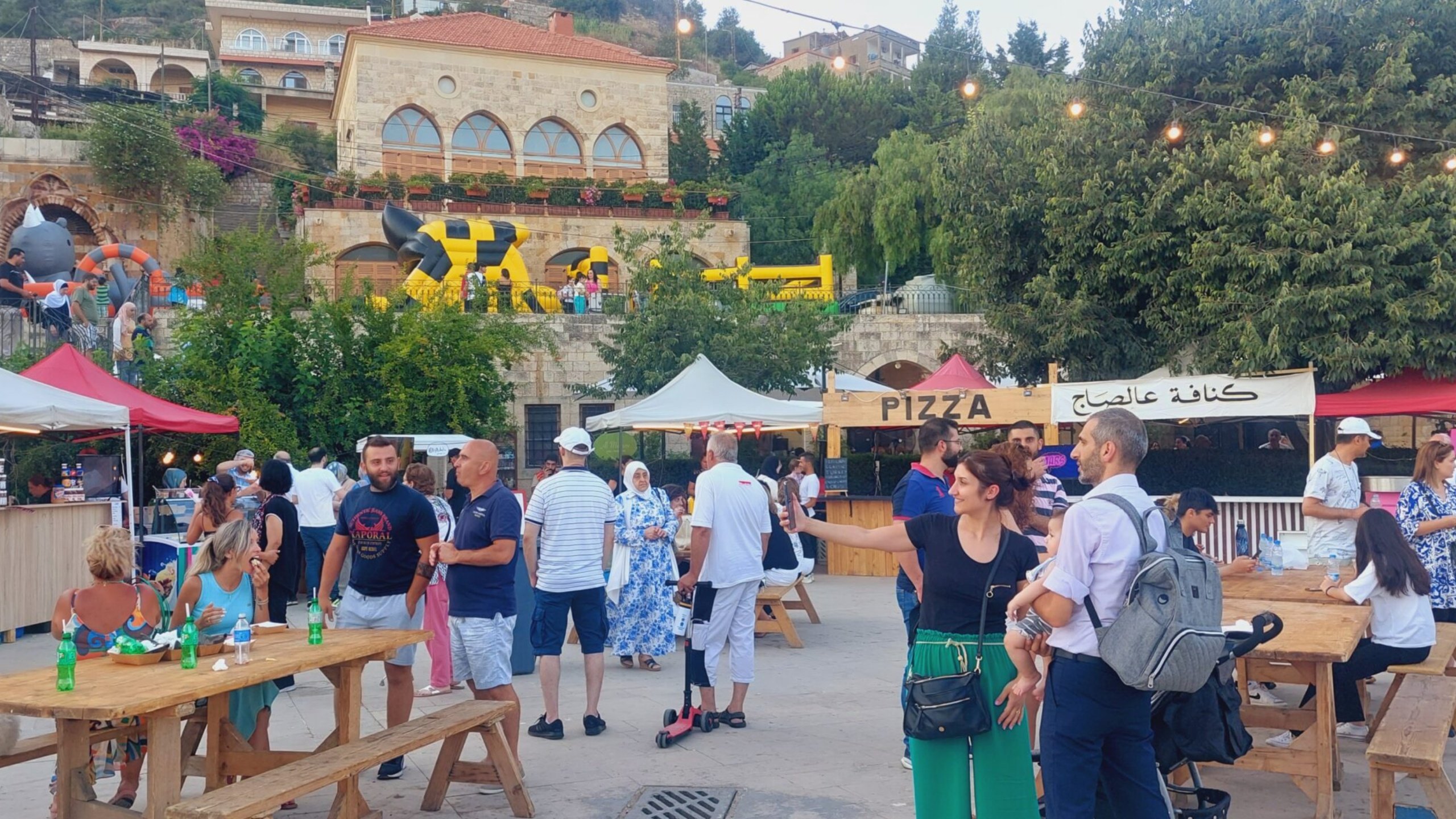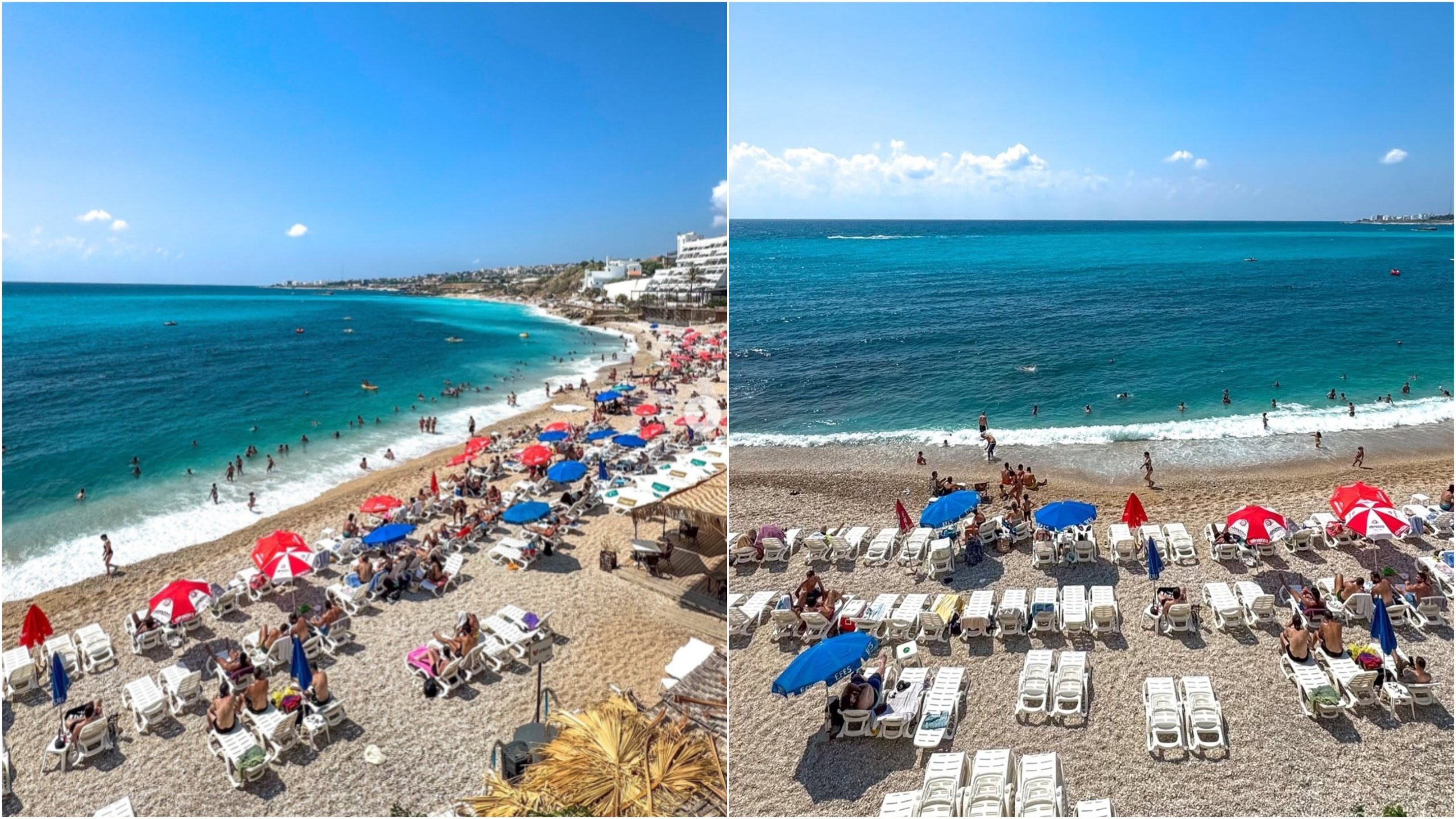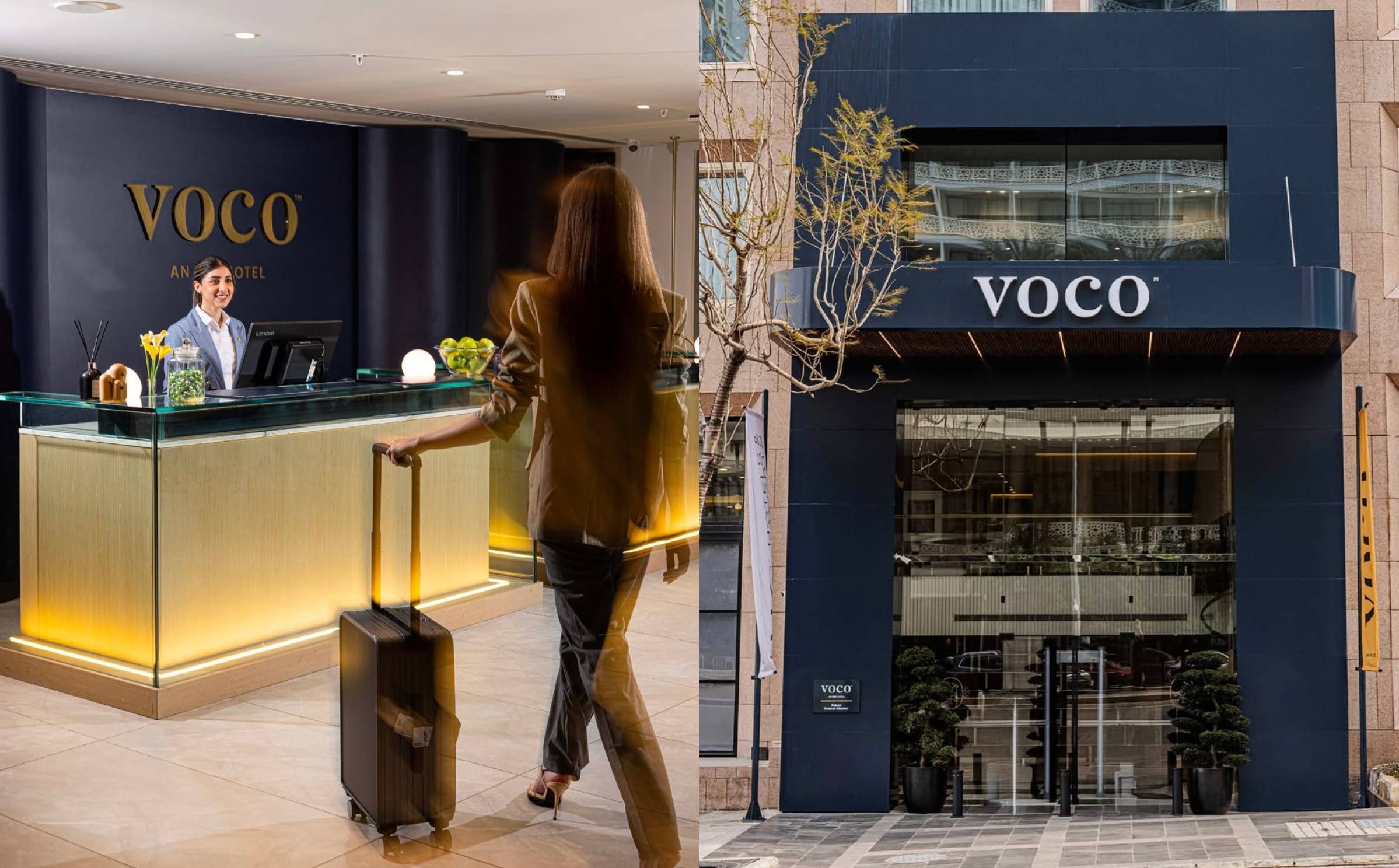Artist Spotlight: Interview With Lebanese Actor And Improviser Jana Haraty
We sat down with New York-based Lebanese actor and improviser Jana Haraty, an up-and-coming creative who is showcasing what the Arab community has to offer. Here’s what she had to say!

Q: Hi Jana, welcome to Beirut.com! How are you?
Hi, Thank you so much for having me. I’m doing great.
Q: Let us start off with your acting journey. How did you begin and what inspired you into this field?
As a child, I was captivated by Egyptian films, Syrian shows, weekly comedy sketches, and every existing Disney film. I spent countless hours imitating characters and performing either in front of the mirror or for my family and friends. That was the highlight of my day. At that point, I wasn’t even aware of what acting truly entailed or that acting classes were a thing. It wasn’t until I randomly participated in a kids’ acting class that everything clicked for me, I just knew I had found my purpose…
Given that I was enrolled in a French school, I had to learn English on my own to keep up with Hollywood. So I did it by using subtitles and learning the lyrics of every Disney song by heart. My parents were supportive but with one condition: I had to finish my university education. So, I earned a degree in television and film with a minor in Arabic performance arts. This journey made me even more interested in Arabic theater and literature, guiding the path I’m still on.

Q: How does your Lebanese background influence your performances?
My Lebanese and Egyptian heritage from my grandmother’s side plays a significant role in influencing my performances. Growing up, iconic figures like Adel Imam, with his brilliant comedic timing, and Abla Kamel, my favorite female comedian, had a profound impact on my approach to comedy. Witnessing their ability to fill a room with laughter and joy simply by appearing on screen was truly incredible. And that’s when it hit me I wanted to bring that same sense of happiness and comfort to people through my comedy.
In Lebanon, the presence of female comedians is less common, and the industry has predominantly shifted away from comedy. The days of weekly sketch shows like “Ma fi metlo” have come to an end, with a focus now on drama and action projects that address the country’s challenges and stories. This shift is understandable given the current circumstances. Both George Khabbaz and Nadine Labaky’s work serve as immense inspirations for me. Their ability to write and perform in their own productions has not only motivated me but has also inspired many others to delve deeper and generate more original material.
Q: Why did you choose NY?
Despite my unconditional love for Lebanon, the standards were always really high for a female actress. However I was ready to attempt to fight these norms. After the Beirut Explosion, I felt a piece of my heart go missing, and that’s when I made the difficult decision to leave. I was given the option between New York and LA, however, LA never really sparked that creative inspiration in me like New York did. New York has this undeniable rawness,and being surrounded by people from every corner of the globe felt like the right place to push myself further and truly develop as an artist. It’s the home of pure art and the center of theater, featuring my favorite writers, actors, and musicians. I believe that if you can make it in New York, you can make it anywhere.
Q: You’ve moved thousands of miles away but we’re sure you have a few places that still make you feel like home. What’s your favorite place to hang out or get inspired in New York?
The city’s theaters, big and small,never fail to inspire me. If you have a love for the stage, the city itself is bound to fuel your creativity. Personally, I find the theater at the Lee Strasberg Institute particularly inspiring. It’s a place where I reconnect with some of my teachers, whom I consider mentors, and immerse myself in the space where my journey began. Being in the theater, whether as part of the audience or on stage, is a profoundly inspiring experience for any actor. I make it a point to actively be part of the audience as well as on stage. Then there’s a drama bookshop where I can sit, write, and read plays, along with the public library for literature books. Bibliotheque, a café, is also one of my favorite spots to spend time. On weekends, a few Brooklyn venues host oriental parties playing all-time favorite songs from our childhood that instantly bring balance to my soul. And finally, Washington Square Park is such a unique and weird place to observe a multitude of human behaviors happening all at once and it provides me with endless character inspiration.

Q: I don’t think people really understand the struggle of working in such a competitive field in entertainment. How is it like being a Lebanese woman in this industry
I find it relatively tougher in Lebanon, particularly as a Lebanese woman working in this field. The pressure on your appearance is always present; often, it seems beauty standards take precedence over talent. The circle of Lebanese actresses in New York is quite small, and expanding this industry as a proud Lebanese and Arab woman is challenging yet incredibly exciting. Meeting Lebanon’s standards can be demanding, with looks sometimes overshadowing talent.I recall my first week in drama school and the amazing feeling of being embraced as I am, with a bare face and natural look, without the constant pressure to glam up. Fellow actors encouraged me to embrace my natural curly hair, and I hope we can inspire each other as female artists in the Lebanese industry to embrace more of ourselves.
While Lebanon may have challenging standards, looks should not outweigh talent. There are raw talents in Lebanon who proudly embrace their natural selves, setting a great example for every female out there. I am grateful for these role models who encourage authenticity and individuality in the industry.
Q: If given the chance to come back to Lebanon, what would you change about the industry you’re in?
If given the opportunity to influence the entertainment industry in Lebanon, my primary focus would be on creating more opportunities for Lebanese women in comedy. I aspire to be a catalyst for change, representing Lebanese women comedians based on their genuine talent rather than their appearance. It’s disheartening to witness limited opportunities for true artists, with roles often miscast and not reflective of the actor’s true capabilities. Eliminating the necessity for connections, or “wasta,” to secure roles is a significant obstacle I aim to remove from our industry, giving more spotlight to deserving artists dedicated to their craft.
I envision a more inclusive industry that provides increased opportunities for young and emerging artists, fostering the vibrant and diverse artistic community that already exists.I also believe in the importance of artistic freedom, allowing writers and creators to produce work that authentically represents contemporary Lebanon without censorship. Such projects could resonate with and be relatable to our youth, depicting the realities of life in Lebanon today.
I’m thrilled to be involved in a project called “Jiran,” directed by my friend Kareem Jrab. Set in Lebanon, the series explores navigating life and relationships in your 20s, aiming to connect with many and showcase our current reality with authenticity and no censorship.
My last wish is to inspire more theater in Lebanon’s modern scene. Our rich artistic culture has the potential to produce exceptional works that go beyond traditional films and series. By doing so, we can open doors for a new generation of artists, especially women, and provide them with the opportunities they rightfully deserve.

Q: When you’re visiting, what is one place in Beirut or anywhere in Lebanon that you know is going to be the first place you visit?
If you know me, you already know that you’ll find me sipping on a Cosmopolitan at Jive on Gemmayze Street. I absolutely adore the place. It has a vintage charm, it’s beautiful, slightly hidden, and their drinks are simply amazing. Not to mention that the staff there have become my friends too.
When I come to Lebanon, I prefer to split my time between Beirut and Beqaa, where my family is. I enjoy spending time in Beqaa because of its beautiful nature and agriculture, which brings me immense peace, like a weekend escape. I love joining my dad in his agricultural endeavors and stroll around the picturesque fields, capturing moments with film photos.
Q: You’ve mentioned that you’re interested in method acting. What is that like?
Method acting, with its emphasis on drawing from personal experiences and memories, sets itself apart from other acting methods. Strasberg’s techniques, such as emotional memory, sense memory, and substitution, are powerful tools aimed at forging a genuine connection with the character’s emotions. While I love immersing myself in the character’s world, I’ve also learned the importance of detaching from the character after a performance for my own sanity. The journey of method acting involves connecting with our senses, experimenting with diverse personal approaches to the work, all in pursuit of achieving a level of realism and authenticity in the portrayal. Reliving both the most painful and joyful memories and repurposing them in new contexts places a strong focus on the psychological aspects of acting.
Part of the method is also training the body through different aspects such as dance, music, and improv. This comprehensive approach not only enriches the craft but also turns the entire acting process into a fun and fulfilling exploration.

Q: Why is it important to learn how to Improv? Maybe you can tell us something about your own experience, how you learned to develop your improv skills, and a time when you had to apply it.
Learning improv is crucial because it’s not just about thinking on your feet, it’s about truly connecting with the moment, being open to wherever a scene or interaction might lead you. My first encounter with improv wasn’t until it became on my class schedule, and I was surprised to learn that comedy, something so natural to me, was actually a structured art form you could study. Throughout every improv class, I learned and unlearned many things. I became more confident,willing to take risks, and learned the importance of tearing down my own walls. Improv taught me to show up as I am, which was liberating. I attended classes without makeup, in casual clothes, and felt completely accepted. It’s a powerful feeling to realize you can embody any character or persona and be embraced for it. Improv also significantly enhances your acting skills. It forces you out of your comfort zone and into new territories of expression you might not explore otherwise. Suddenly, you’re finding new angles and approaches to a character or a scene that you haven’t considered before, all because improv pushes you to think and react in the moment. One of the most transformative aspects of improv for me was its impact on performance anxiety. As someone who always battled with nerves, the spontaneity and supportive environment of improv provided a unique way to manage stress. It taught me to connect more deeply with my fellow performers, listen more and think less. Every artist should experience the transformative power of improv and see the incredible impact it can have on their craft.
Q: We’d love to know how the MENA region’s entertainment industry has inspired you growing up. Who is your favorite Arab comedian or performer?
Growing up, the MENA region’s entertainment industry was a treasure of inspiration for me. Nadine Labaki stands out as a monumental influence on me. Her work and presence in the industry represent the kind of powerful, inspiring woman I aspire to be. Comedians like Adel Emam, Abla Kamel, and George Khabbaz brought endless joy and laughter into our home. Mafi Metlo was another source of sheer entertainment, with its weekly sketches always leaving me eager for more. I wish to have them back on screen and on stage. Not to forget Syrian shows! Every single actor and actress in the show Day3a Day3a is a comedic genius and a true inspiration to actors.
Q: Can you tell us about a project you’re most proud of while in New York?
I can tell you about a project I’m looking forward to, which is a romcom film called ‘222,’ shot in both New York and Beirut. It explores concepts like cosmic timing and faith. I’ve also had the opportunity to take on a small role in a production of Shakespeare’s ‘Macbeth’ this upcoming summer, and I can’t be more grateful for the opportunity.
As mentioned earlier, I’m cast as the lead role in ‘Jiran,’ something I’m eagerly anticipating sharing with my Lebanese friends and family.
Reflecting on my time in New York, one of my proudest projects was ‘Sketch of New York.’ It was among the first projects I worked on in the city, featuring sketches that humorously highlight the unique struggles of New York. Despite the challenges, the sketches capture the enduring love for this vibrant city and were so fun to be a part of. This project holds a special place in my memory as it marked my debut in a leading role, making it doubly significant. With three surreal nights of performances that quickly sold out, we found ourselves playing to packed houses. The energy of the audience was palpable, and the positive reviews that followed only added to the sense of accomplishment. It was truly gratifying to see so many people come out to support our work, making it truly an unforgettable experience

Q: What advice do you have for aspiring creatives to make it big outside Lebanon?
It’s a challenging yet exciting opportunity for anyone to try to make it outside of Lebanon. It’s undeniably beautiful to represent where you come from while doing what you love. The advice I’m giving to myself as well is to keep working on yourself, always find a way to get inspired, stay connected to your roots, draw from personal experiences, even if they are painful, and build from there. Lastly, and more importantly, listen to Haifa!





